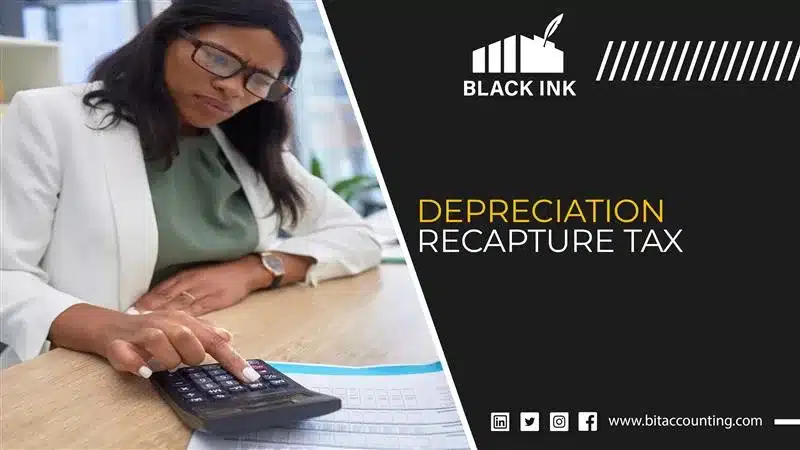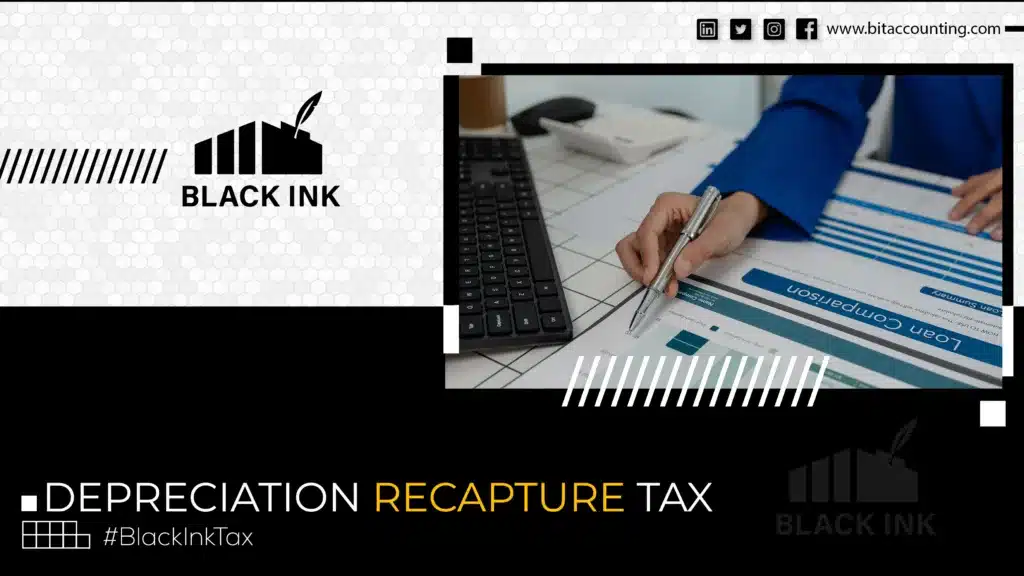
Table of Contents
Understanding How Much Is Depreciation Recapture Tax?
When you sell a property or a business asset, you might think the money you make is all yours. But here’s the twist: if you claimed tax deductions for depreciation over the years, the IRS wants a part of that back. That’s called depreciation recapture tax—and it can surprise many property owners and investors.
If you’ve been in real estate investing, own a business, or are simply curious about financial accounting, understanding this tax is crucial. It affects your capital gains, your income, and how much money you actually keep in your pocket.
In this blog, we’ll break down what depreciation recapture tax is, how it works, what the tax rates are, and how you can calculate or even reduce what you owe. Whether you’re a seasoned investor, a beginner in business ownership, or someone navigating the world of personal finance, this is your go-to guide.
What Is Depreciation Recapture Tax?
Let’s start with the basics. When you own a rental home, commercial building, or business equipment, you can deduct a portion of the asset’s value each year. This is called depreciation—and it’s a smart tax break that helps reduce your taxable income.
But when you sell the asset, the IRS checks how much depreciation you claimed over the years. And if you made a profit on the sale, the government “recaptures” some of those deductions by taxing them.
Here’s a simple way to think about it:
You saved money before—but now the IRS wants some of that back.
Two Main IRS Rules:
- Section 1250: For real estate like rental homes or commercial buildings.
- Section 1245: For personal property like business machines, equipment, or furniture.
So, depreciation helps reduce your income tax during ownership, but it may increase your tax bill when you sell.
How Does Depreciation Recapture Work?
Understanding how it works is key to smart financial planning. Let’s walk through the steps.
Step-by-Step Breakdown:
- You buy a property or asset (like an apartment or office equipment).
- Each year, you take depreciation deductions based on the asset’s cost and useful life.
- When you sell the asset, you compare:
- Your original price (also called cost basis),
- Minus depreciation (now it’s the adjusted basis),
- Against the sale price.
The difference between the adjusted basis and the sale price is your gain. Part of that gain—up to the amount of depreciation you claimed—gets taxed at a special recapture rate.
Example:
- You buy a rental property for $300,000
- Over time, you deduct $60,000 in depreciation
- Your adjusted cost basis becomes $240,000
- You sell the property for $400,000
Now your total gain is $160,000. But $60,000 of that gain is depreciation recapture, taxed at a higher rate.
Depreciation Recapture Tax Rates
So, how much will you pay?
For Real Estate (Section 1250 property):
- The IRS caps the recapture tax rate at 25%
- That’s often higher than long-term capital gains tax, which can be 0%, 15%, or 20% depending on your tax bracket
For Equipment and Personal Property (Section 1245 property):
- Recaptured depreciation is taxed as ordinary income, which could be up to 37% depending on your total income
State-Level Taxes:
Some states, like California or New York, add their own tax rules, increasing your overall tax on gains. State-level taxation can vary, so it’s smart to talk to a financial adviser.
Quick Comparison:
Type of Gain | Taxed As | Rate |
Depreciation Recapture (real estate) | Special Rate | Up to 25% |
Depreciation Recapture (equipment) | Ordinary Income | Up to 37% |
Capital Gain (after recapture) | Capital Gains Rate | 0% – 20% |
Knowing this helps you manage your finance, reduce surprises, and plan better for the market.

How to Calculate Depreciation Recapture Tax
Let’s simplify the math.
Basic Formula:
Recapture Amount = Lower of
a) Total Depreciation Taken
b) Gain on Sale
Let’s plug in some numbers.
- Purchase Price: $300,000
- Depreciation Claimed: $60,000
- Sale Price: $400,000
- Adjusted Basis: $300,000 – $60,000 = $240,000
- Total Gain: $400,000 – $240,000 = $160,000
- Recapture Amount: $60,000 taxed at 25% = $15,000
- Remaining $100,000 is taxed as a capital gain
Reporting to the IRS:
You’ll use IRS Form 4797 to report this on your tax return. If you skip this, you may face penalties.
Strategies to Minimize or Avoid Depreciation Recapture Tax
Want to keep more of your money? Here are some smart moves:
1. Use a 1031 Exchange
Reinvest the sale money into another similar property and delay the tax. It’s great for long-term real estate investing.
2. Try an Installment Sale
Sell the property and collect the money over time. This spreads the tax over several years and keeps you in a lower tax bracket.
3. Convert the Property to Your Primary Home
If you live in the property for 2 of the last 5 years, you might qualify for the home sale exclusion. This helps reduce or even avoid some capital gains tax.
4. Donate the Property
Give the asset to a nonprofit. You may get a charitable tax deduction and skip the recapture tax.
5. Cost Segregation Study
Break your property into smaller parts (like lighting or flooring) to accelerate depreciation. This may increase your short-term tax deductions and improve cash flow.
These strategies involve financial management, so it’s wise to consult with an accounting expert or a taxpayer adviser.
Common Mistakes to Avoid with Depreciation Recapture
Avoiding errors can save you from headaches—and extra taxes.
- Not tracking depreciation properly: If you miss past deductions, the IRS might still assume you took them and tax you anyway.
- Mislabeling property: Know the difference between Section 1245 and 1250 property.
- Ignoring state taxes: States have different rules for income taxes and real estate sales.
- Selling without planning: A little planning can cut your taxable income big time.
Conclusion
Depreciation recapture tax is one of those hidden costs that can sneak up on you. Whether you’re selling an apartment, office equipment, or a business asset, this tax affects your bottom line.
But with the right knowledge—and a little planning—you can make smarter moves, lower your tax bill, and keep more of your net income.
At BIT Accounting, we help people and businesses understand complex tax rules in simple terms. From handling your financial statements to helping you plan your next investment, we’ve got your back.
FAQs
1: What triggers depreciation recapture?
Selling a depreciated asset for more than its adjusted basis. That profit is what triggers the tax.
2: Is depreciation recapture always taxed at 25%?
No. Real estate is capped at 25%, but business equipment can be taxed at your full income tax rate.
3: Can I avoid depreciation recapture tax entirely?
Sometimes, yes—through a 1031 exchange, donation, or turning the property into your main home.
4: Do I still pay capital gains tax after recapture?
Yes. Any gain above the depreciation claimed is taxed as capital gains.
5: What if I never claimed depreciation?
The IRS may still assume you did. That’s why keeping solid records is a must in financial services and corporate finance.
GET FREE QUOTE FOR ALL OF OUR SERVICES
Black Ink will send you a free analysis of your current state and what would be the cost of managing either a separate accounting and bookkeeping services or a complete solution across New York, USA. Do get in touch and we will be happy to consult you with our bookkeeping services in NY, New York, USA.
